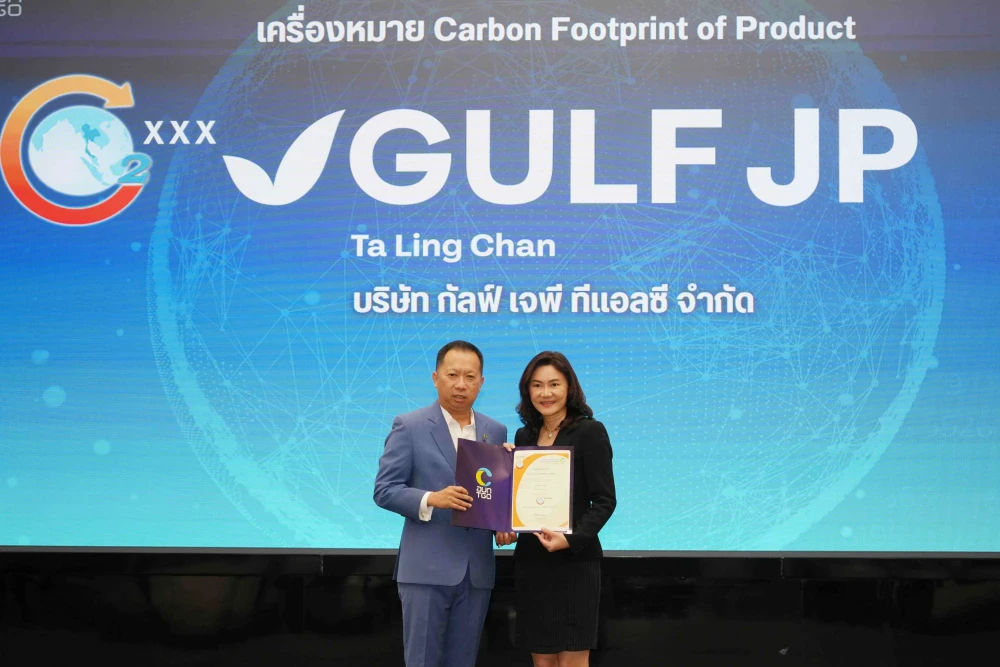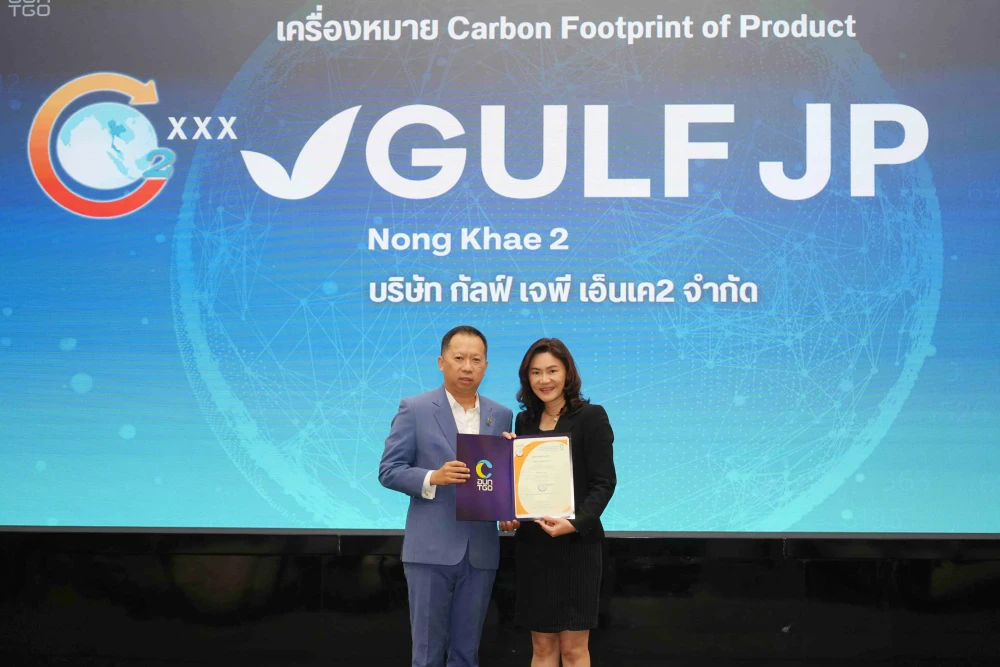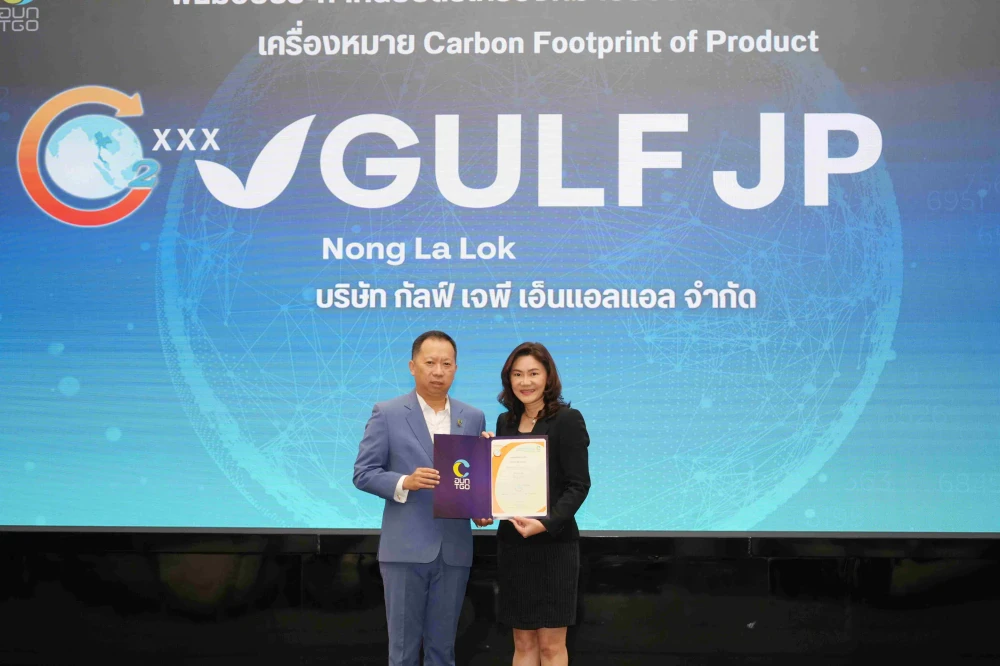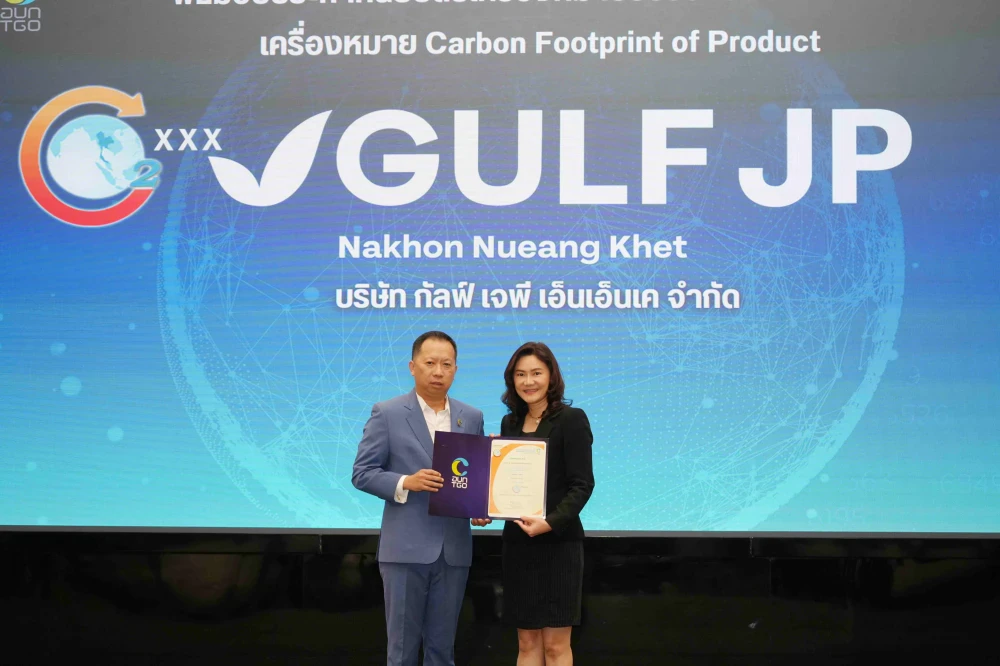GULF’s Four Power Plants Receive Carbon Footprint of Product (CFP) Certification, Affirming 2050 Net-Zero Goal
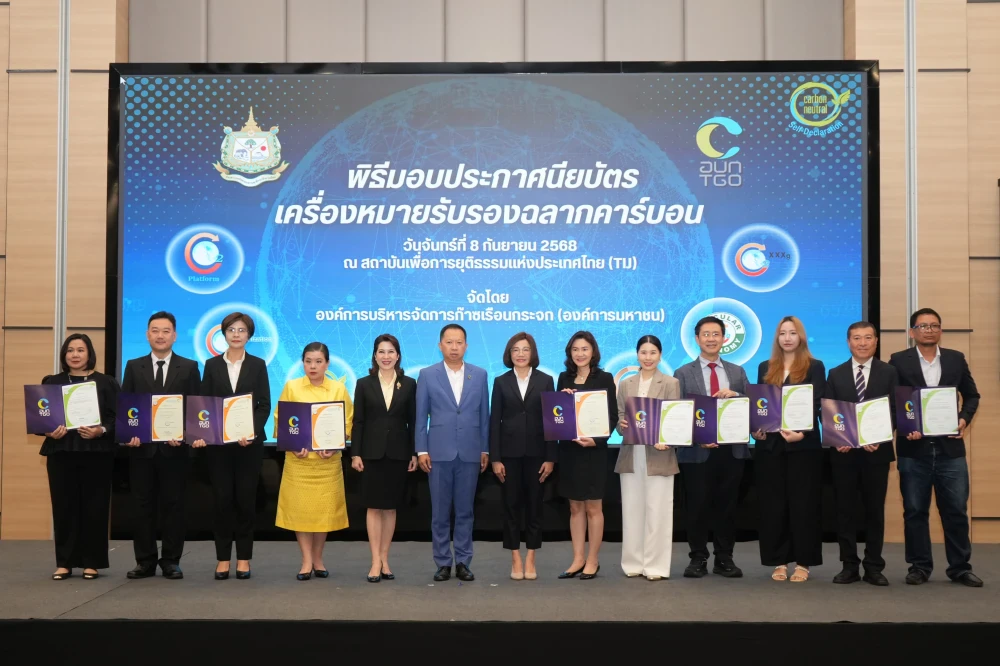
Gulf Development Public Company Limited (GULF) recently announced that four of its power plants have been awarded the Carbon Footprint of Product (CFP) certification. Ms. Natcharee Pongrattanadej (8th from left), Head of Asset Management, represented the company in receiving the certificates from Mr.Nakorn Tangavirapat (6th from left), Executive Director, Thailand Greenhouse Gas Management Organization (TGO), at the Carbon Label Certification Award Ceremony held at the Thailand Institute of Justice.
The four certified power plants are Taling Chan Power Plant, operated by Gulf JP TLC Company Limited, Nong Khae 2 Power Plant, operated by Gulf JP NK2 Company Limited, Nong Lalok Power Plant, operated by Gulf JP NLL Company Limited, and Nakhon Nueang Khet Power Plant, operated by Gulf JP NNK Company Limited. This certification underscores GULF's commitment to sustainable business practices, aligning with the United Nations Sustainable Development Goals (SDGs) and its comprehensive ESG framework.
The company has set a target to achieve Net Zero greenhouse gas emissions by 2050, while maintaining its ‘No Coal Policy’. GULF also aims to increase its share of renewable energy to at least 40% of its total generation capacity by 2035. Furthermore, GULF integrates ESG principles throughout its value chain in collaboration with business partners to drive a low-carbon economy and society.
The Carbon Footprint of Product (CFP) label assesses the amount of greenhouse gas emissions released throughout a product’s entire life cycle. This is calculated in terms of carbon dioxide equivalents using a life cycle assessment approach, which accounts for everything from raw material acquisition, production processes, and product use to its final disposal. This label helps consumers make informed decisions and choose environmentally friendly products. It also encourages manufacturers to improve their production technology to reduce greenhouse gas emissions, which in turn enhances their competitiveness in the global market.
